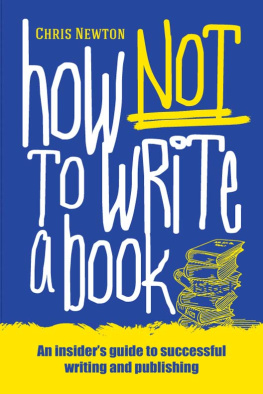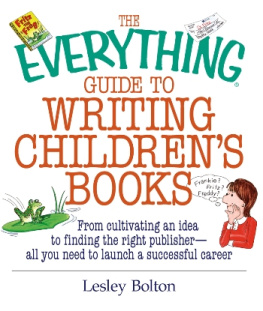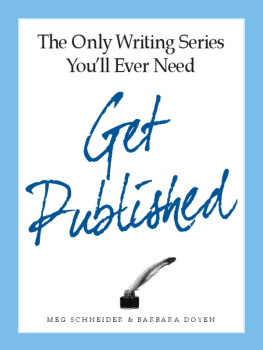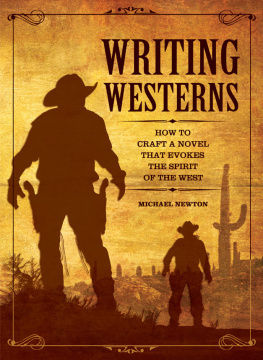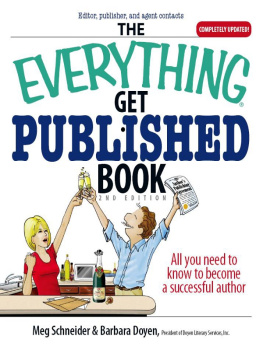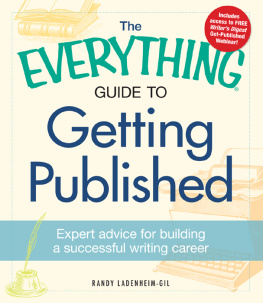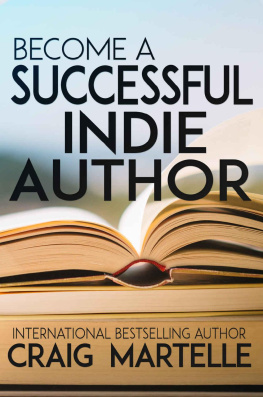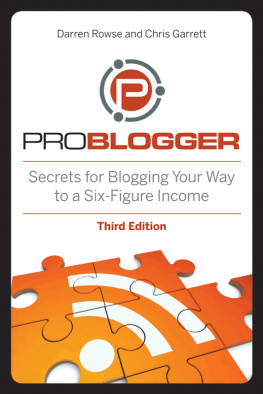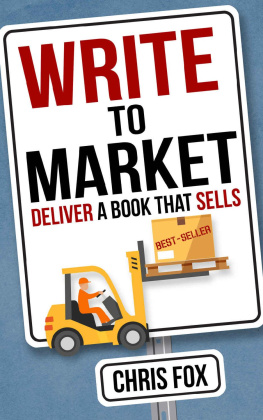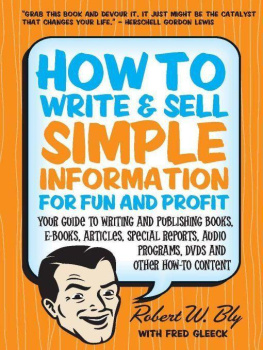
HOW NOT TO WRITE A BOOK
Chris Newton
An insiders guide to successful writing and publishing for beginners
Copyright 2015 by Chris Newton
Published by Mereo

Mereo is an imprint of Memoirs Publishing
25 Market Place, Cirencester, Gloucestershire GL7 2NX, England
Tel: 01285 640485, Email:
www.memoirspublishing.com or www.mereobooks.com
Read all about us at www.memoirspublishing.com .
See more about book writing on our blog www.bookwriting.co .
Follow us on twitter.com/memoirs books
Or twitter.com/MereoBooks
Join us on facebook.com/MemoirsPublishing
Or facebook.com/MereoBooks
Chris Newton has asserted his right under the Copyright Designs and Patents
Act 1988 to be identified as the author of this work.
A CIP catalogue record for this book is available from the British Library.
This book is sold subject to the condition that it shall not by way of trade or otherwise be lent, resold, hired out or otherwise circulated without the publishers prior consent in any form of binding or cover, other than that in which it is published and without a similar condition, including this condition being imposed on the subsequent purchaser.
ISBN: 978-1-86151-411-0
Preface
It is not unusual for a book to be whittled down to bite-sized chunks for publication in feature form or on the internet, but this book is the opposite. It started life as a downloadable how-to-do-it guide for authors submitting books to the company I work for. As it grew I began to realise that there was more, much more, I wanted to say about the subject, and which I felt budding authors might like to hear enough to make a full length-book. Here it is.
Acknowledgements
My sincere thanks to my colleagues Tony Tingle and Ray Lipscombe at Mereo for their very considerable part in the production of this book.
This book is dedicated to all those authors, accomplished and otherwise, who have kindly entrusted me with their books.
About the author
Chris Newton worked as a newspaper and radio reporter in his youth before embarking on a career in media relations. His lifelong passion for the written word soon led to a specialisation in writing and editing books. Chris biography of a celebrated writer and wildlife broadcaster, Hugh Falkus A Life On The Edge , was widely acclaimed by the national press and described by one reviewer as having a good claim to be the finest biography of an angler anyone has ever written. Since 2009 he has been Editor in Chief at Mereo Books (formerly Memoirs), where he has edited or ghostwritten everything from best-selling literary novels, autobiographies and childrens stories to self-help guides and science books.
Other books by Chris Newton
Hugh Falkus A Life On The Edge (Medlar Press, 2007)
The Trouts Tale, the Fish that Conquered an Empire (Medlar Press, 2013)
The Golden Game Fair, 50 Years of the CLA Game Fair (Medlar Press, 2008)
The Little Book of Fly-Fishing for Trout (with Richard Duplock) (G2, 2013)
All About Aliens (writing as Chris Lee) (Mereo, 2014)
Author comments
Chris Newtons input into my book was not only priceless but taught me some valuable lessons about writing and publishing . Michael Khatkar
What a brilliant job you have done... anyone who tries to write without having a proper editor must be utterly mad . Catherine Gilling
To Chris, my awesome editor, for transforming this story from a half-baked possibility into an exciting reality . Shivon Sudesh
CONTENTS
Who this book is for
This book is not primarily aimed at accomplished writers, although they will, I hope, learn something from it. Nor has it been written for those who have already successfully published books, though again, they may pick up some useful points. I have written it mainly to help a much larger body of people: those who a few decades ago would not have dreamed of writing a book but who may now do so quite easily, thanks to a flourishing literary democracy, and of course, the ubiquity of the electronic keyboard.
Accordingly the pages that follow are directed primarily at those who are literary virgins, or are still at the conception stage of book-writing, or experiencing difficult pregnancies. The process of editing some hundreds of books, mostly by new and inexperienced authors, has given me a pretty good idea which parts of the job they struggle with.
So if you have a book inside you which is asking to come out, dont listen to the cynics who quip that it should stay there read on, and find out how to ease its entrance to the world. If the book has already seen the light of day but is failing to thrive, as medical people say, this book should help you to find out what you might have done wrong, and how you can hope to do better next time.
If you want to be a writer stop talking about it and sit down and write!
Jackie Collins
Introduction
Asked to name their ideal job, more people in the UK say they would like to be an author than anything else. Sixty per cent of those polled put it top*, followed by librarian at 54% and academic at 43%.
No wonder the UK produces more authors per head of population than any other country in the world. A report from the IPA (International Publishers Association) gives a figure of 184,000 new or revised titles by UK publishers in 2013, the last year for which figures are available. The self-publishing business has facilitated an explosion in publishing. Around 200,000 books are now being published in the UK each year.** The age of the author has clearly arrived with a bang, and not just in the UK, thanks mainly to the inviting world of self-publishing opened up by 21st century information technology. A couple of decades ago, an author had two choices; either somehow write a book which was such a guaranteed best-seller that a trade publisher would take it on, or pay an editor, a designer and a printer a great deal of money for a vanity published book which had no chance of being read by anyone except the author, his wife and their cat. Publishing a book perhaps making money from it - is now within reach of anyone who can manage the relatively affordable outlay involved. But the game has changed dramatically, and it is still changing.
So should you write a book? And what kind of book should it be? How do you set about writing one properly? Could it possibly be successful by which I mean selling in worthwhile numbers to people who have never heard of you? There is a chasm of difference between writing a book to please family and friends and creating one which will persuade people who dont know you to part with their cash.
These questions are what the rest of this book is about.
Throughout the text I have used short passages of prose to illustrate typical errors of style, syntax etc. These extracts are not exaggerated. They are based on, or inspired by, books I have read, reviewed or worked on, but for obvious reasons I have not used direct quotations from actual books or manuscripts, except where stated.
*YouGov February 2015
**The figure varies according to the source you use; UNESCO cites 206,000, while book data company Bowker gives a figure of 234,000 in hard copy for 2012, based on the number of ISBNs registered, and if you include eBooks, the figure rises to 391,000.
PART ONE
The business of writing
Next page
